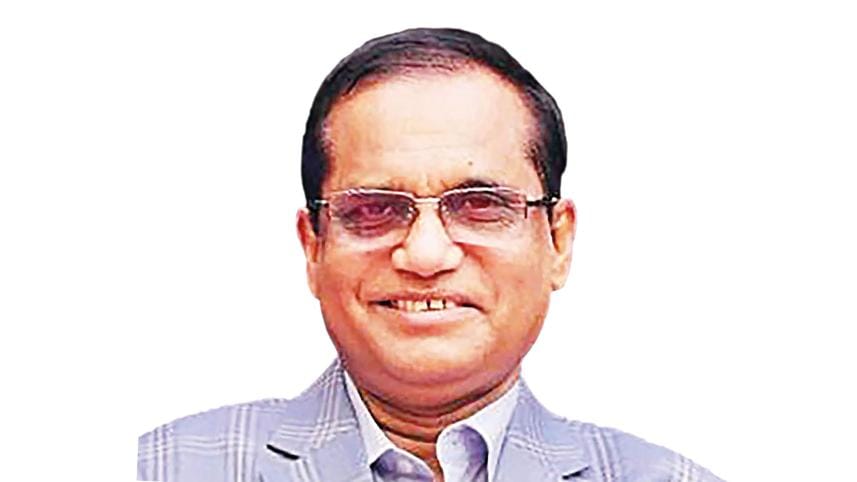Affordable finance for underserved communities

Abul Kashem Md. Shirin
Managing Director & CEO, Dutch-Bangla Bank (DBBL)
The Daily Star (TDS): How would you assess the current state of sustainable banking in Bangladesh?
Abul Kashem Md. Shirin (AKMS): In the banking sector of Bangladesh, the journey towards sustainable and green banking started a long time ago with the initiative of Bangladesh Bank. The BRPD of Bangladesh Bank issued the Environmental Risk Management Guidelines for Banks and Financial Institutions in January 2011 and the Green Banking Policy Guideline in February 2011. Later, the Sustainable Finance Department was established to strengthen sustainable finance and green banking initiatives.
We are taking part in Bangladesh Bank's initiative towards building a better environment by following environmental and social standards in financial decisions, in addition to the financial aspects. Sustainability has now become a mainstream consideration and receives priority when engaging funds in any project. Bangladesh Bank reports show that disbursement under sustainable finance has increased rapidly from 8.04% in 2021 to 39.66% in 2024, and green finance disbursement in terms of total term loan disbursement has also risen from 3.06% in 2021 to 13.29% in 2024 by banks and NBFIs.
TDS: What sustainable or green financing/refinancing schemes does your bank offer, particularly for SMEs, women entrepreneurs, or other environmentally responsible enterprises?
AKMS: Dutch-Bangla Bank is providing green finance under different term loan products and refinance schemes with reduced interest rates under the purview of Bangladesh Bank guidelines for eligible purposes.
Customers across all segments can avail themselves of green finance and refinancing facilities ranging from short-term to long-term. We have dedicated desks with specific targets for sustainable finance, SMEs, and women entrepreneurs in all branches and business units. Moreover, for women entrepreneurs, we have developed two special products — Shofolota and Utshaho — under Bangladesh Bank's refinancing schemes, available at a 5.00% interest rate. The bank also has a loan product named Janala, a house finance scheme designed to provide low-cost housing solutions for workers in large industrial zones. CMSME loans are also disbursed through our agent banking outlets spread across Bangladesh.
TDS: What initiatives has your bank undertaken to promote sustainable banking, and what measures have you implemented to reduce your own carbon footprint?
AKMS: Our main objective is to initiate inclusive sustainable banking for all members of the community. The expansion of our financial inclusion programmes ensures access to affordable finance for underserved communities, as our banking network spans the entire country.
We now have 243 branches, 307 sub-branches, 8,566 ATMs & CRMs, and 5,620 agent banking outlets across the country, including in remote areas. More than 80% of our agent outlets are located in rural areas, and over 40% of agent accounts are held by female customers. Moreover, Rocket accounts are widely distributed nationwide and play a vital role in financial inclusion. We currently have over 3.85 crore Rocket accounts, of which 31.45% are rural and 43.29% are female-owned. Through this service coverage, poor, ultra-poor, and even illiterate people living in remote areas can access modern, technology-based banking facilities.
Our CSR contributions also play an important role in our sustainability standing. We have contributed Tk 1,200 crore to CSR, most of which has been channelled into education, health, disaster management, climate risk mitigation, and infrastructure development for institutions.
To promote sustainability in financing decisions, we have made environmental risk rating mandatory for all commercial lending. Environmental guidelines are also a compulsory and integral part of our credit policy and approval process.
TDS: What challenges has your bank encountered in adopting and promoting sustainable banking practices?
AKMS: We are creating awareness among borrowers and stakeholders across all segments about sustainability and the inherent benefits of using energy-efficient green technology. Large industrial units are generally aware of sustainability parameters and compliance. We take special care with CMSME customers to raise awareness about the benefits of investing in sustainable and green products, as many SME entrepreneurs still perceive investment in green products as an additional cost and tend to avoid it.
TDS: What are your bank's future plans to advance sustainable banking, and what support do you seek from the government?
AKMS: At present, over 80% of our financing falls under sustainable finance. The sustainability of the bank depends largely on its core banking performance, and environmental finance is also a key part of this. Dutch-Bangla Bank maintains excellence in core banking, and all other financial indicators are also highly favourable within the industry.
Our future plans include continuing our network expansion to provide more inclusive banking and expanding our CSR activities to benefit more people. In addition, we are redesigning our credit portfolio to diversify by sector and geography. The SME and retail sectors are receiving priority in our decision-making process. We have taken steps to balance our loan portfolio between corporate, SME, and retail sectors at a ratio of 40:30:30, which will ensure proper risk diversification.



 For all latest news, follow The Daily Star's Google News channel.
For all latest news, follow The Daily Star's Google News channel.
Comments